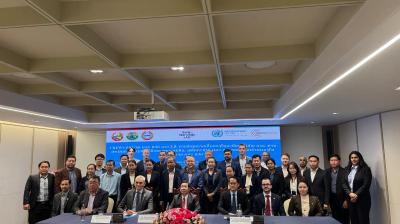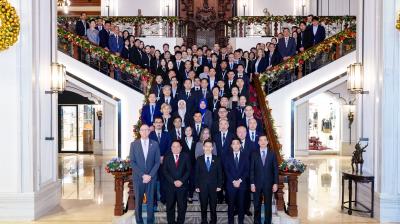Early Warnings for All advances but new challenges emerge
Baku, Azerbaijan (WMO) - A flagship campaign to ensure that everyone on Earth is protected through life-saving early warning systems is advancing and accelerating. But the most vulnerable countries continue to suffer disproportionately. And whilst floods and storms have traditionally been associated with the worst losses, extreme heat has emerged as a major killer.

A top-level event at COP29 in Baku, Azerbaijan, heard calls from government leaders for a new sense of urgency, matched by injection of funding, know-how and technology, for the UN Secretary-General's Early Warnings for All (EW4All) initiative. This seeks to ensure that everyone on Earth is protected from hazardous weather, water or climate events through life-saving early warning systems by the end of 2027.
“This is on track to be the hottest year in the history books. It has scorched countries and communities with temperatures that push the limits of human endurance. And around the world, we’ve seen record rains and hurricanes, historic fires, and deadly droughts,” said António Guterres, who convened the event. It had a particular focus on extreme heat.
“In this era of climate catastrophe, early warning systems and protection from extreme heat are not luxuries. They are necessities. And sound investments: Early warning systems provide an almost ten-fold return,” he said.
COP29 President Mukhtar Babayev cited estimates that investment in early warnings could avert losses of up to US $16 billion per year.
The President of the Federal Republic of Ethiopia, Taye Atske Selassie, recalled the prolonged drought and more recent flooding and landslides which have claimed so many lives and displaced many thousands of people. His country is committed to strengthening investment in hydrometeorological capacity and early warnings, he said.
The President of the Maldives, Dr Mohamed Muizzu, said his island nation is strengthening impact-based forecasting systems to enable enhanced forecasting and timely alerts which reach everyone at the right time and in the right place.
Greek Prime Minister Kyriakos Mitsotakis recalled devastating fires that have caused repeated tragedies in his country – testimony which was echoed by numerous other government ministers at the event. It also bought together senior representatives of development and philanthropic organizations, donor governments, technology companies and civil society.
“The climate crisis demands a collective, "whole-of-society" approach, reaching across sectors and disciplines. Broadening the tent is not just about involving more actors; it’s about empowering everyone to champion Early Warning Systems as a core priority,” said WMO Secretary-General Celeste Saulo, who stressed that National Meteorological and Hydrological Services are the lynchpin of early warnings.










